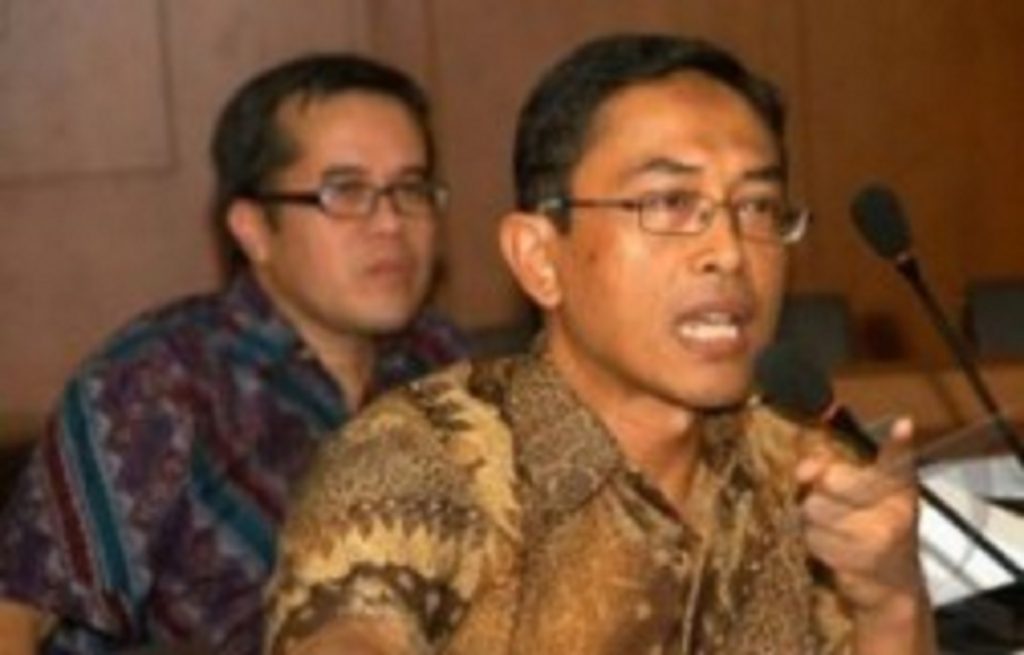In an effort to reduce the risk of flooding nationwide, Prof. Budi Indra Setiawan of the Bogor Institute of Agriculture (IPB) in West Java trumpeted on Thursday the benefits of the Zero Runoff System (ZROS).
Budi said the use of ZROS would help minimize flooding in problematic areas by eliminating puddles of water on roads as soon as the rain stopped.
He added that the system would have three features: reducing the upstream flow of water, increasing the absorption rate of soil, and preventing surface water runoff.
“Essentially, in ZROS, water lines will be constructed on a particular road in such a way that the soil will be able to absorb puddles of rainwater on the street,” he said, adding that the water lines would be constructed according to the area’s water density.
Budi, who is a professor in the institute’s civil and environmental engineering department, said that ZROS was founded in 2008, and had been successfully installed in several areas around the country.
He cited a star fruit plantation in Depok, West Java, as a particularly encouraging success story. There, installation of the ZROS system not only stopped flooding during the rainy season, it also increased crop yields because the soil was kept damp during the autumn months.

ZROS has been successfully installed in other locations, including at a nutmeg plantation in Aceh, and in the Cidanau watershed in Banten, West Java — an area inhabited by hundreds of residents.
Budi said that ZROS should be installed in many areas as part of the solution to fight persistent flooding.
“We are currently planning to install ZROS at the IPB’s Darmaga campus, an area that suffers from problematic surface water runoff,” Budi said.
In Jakarta, Budi said that flash flooding occurred because most of the city’s drainage system had not been constructed to accommodate heavy rains.
Infrastructure deficiencies have thus generated “multidimensional problems”, he said, all of which required immediate attention.
“We hope that developers and construction firms will take advantage of ZROS”, he added.
Budi said that ZROS would be a much cheaper and speedier alternative to the construction of reservoirs. He pointed to the protracted effort at the Ciawi.
Reservoir in Bogor, West Java, as an example, where a host of obstacles, including land acquisition disputes, have hampered completion.
“Constructing ZROS is not expensive (compared to a reservoir). It also doesn’t require large-scale land acquisitions. All it needs is a commitment from the government to socialize the concept to citizens,” Budi said, adding that ZROS could save the government money.
In addition, he said, the system would mitigate the effects of drought in places like eastern Indonesia by helping to keep the soil moist.
source: http://www.thejakartapost.com/news/2014/06/07/ipb-touts-zero-runoff-system-reduce-floods.html
